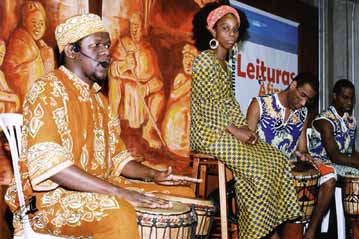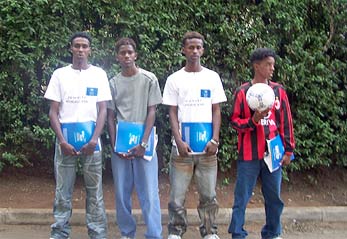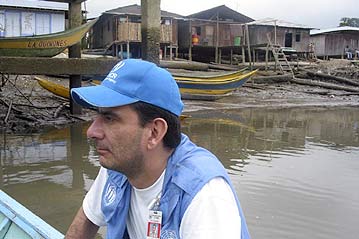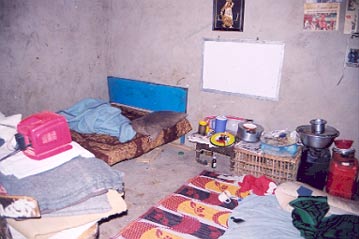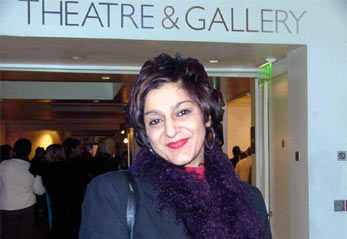From detention to family reunion
From detention to family reunion
RHODES, Greece (UNHCR) - At an age when some children have not even taken the bus alone, Ahmed and Omar (not their real names) have hopped on a boat - unaccompanied - in search of their mother half the world away.
The Somali brothers, aged six and 12, have survived years of loneliness, not to mention a long voyage and detention, to be with their mother in Sweden.
In 1999, their mother fled the conflict in Somalia and was granted refugee status in Sweden, from where she tried to reunite with her sons. She had left them behind with their grandparents, who sent them to Syria two years later with a family friend. After two years in Damascus, the boys were put on a boat to Greece.
During their five-day voyage, they discovered their 25-year-old half-brother on the same boat and he took care of them for the rest of the way. Arriving on the Greek island of Rhodes in May 2003, the brothers were kept in detention for three months. During that time, they were interviewed for family reunification by a Swedish consular officer, and visited by a social worker from the Greek Council for Refugees (GCR).
The psychological assessment concluded that the detention centre was not suitable for the children. However, the social worker felt that "it was thought best for them to remain at the centre for a short time until their detention was completed, and then to move them to an appropriate accommodation in Athens, rather than having to go through another unsettling process and deal with yet another change of environment."
Besides, the boys seemed quite happy to be with their half-brother, and were well-treated by the other detainees.
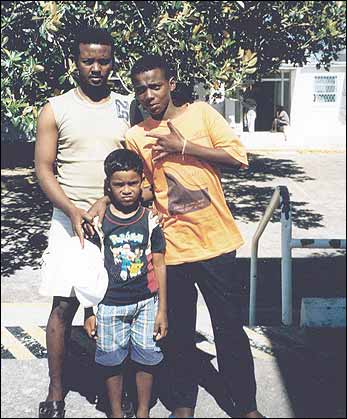
In addition to their psychological state, the children's opinions were also seriously considered. Asked if they preferred to return to Somalia or to live with their mother in Sweden, they said they wished to go to their mother as soon as possible.
A social worker from the Greek Helsinki Monitor & Medical Rehabilitation Centre for Torture Victims observed that the boys seemed really tired of their situation. "The only thing they kept asking was: When are we going to leave? When will we see our mother?" she said. "I never actually saw the little one smile during his stay. The first time I saw him smiling was when he got on the boat to Athens."
From Rhodes, the boys and their half-brother were moved to the Pikermi reception centre for vulnerable asylum seekers, located near Athens and run by the Greek Helsinki Monitor. They spent more than a week there, where they were provided with safety and security as well as age-appropriate guidance and care by social workers.
Thanks to the efforts of three Greek non-governmental organisations, the Ombudsman's Office, the Swedish Embassy, the Swedish Red Cross (SRC), and UNHCR, as well as the help provided by the Greek Asylum Department of the Ministry of Public Order, the children were finally reunited with their mother.
She came to Athens after the necessary arrangements and procedures had been finalised. It was an emotional reunion as the boys had not seen her for almost five years. Together, they left for Sweden, where the children had been granted residence permits.
This can be considered a success story involving family reunification of young children with their mother. It is also a positive example of inter-agency cooperation both in Greece and in Sweden.
But what is worrying is that in 2002 there were some 250 unaccompanied children registered with the authorities in Greece, few of whom are likely to ever see their families again.
By Gina Degaita
UNHCR Greece


